
Good Manners and Etiquette for Kids
Good manners are appreciated as much as bad manners are abhorred.
Bryant H. McGill, Public Figure
Learning proper etiquette for kids has never been greater than it is today because we live in a fast-paced, technology-driven society. Etiquette for kids is not just about how to use table utensils. It also aims to teach you how to treat others the way you want to be treated: to demonstrate respect and kindness to yourself and everyone around you, irrespective of age and social status.
Etiquette helps you in every aspect of life. It helps you make successful friends, strengthen family bonds and improve your communication skills. It also allows you to become civilised in this world. You will carry it over into adolescence and beyond if you learn etiquette as a child.
As a kid, you might act intentionally without thinking if this act is good for you or not. If you want to learn how to behave in public but are not sure where to start, here are many rules of etiquette for children to help you go to the top. Master this list of good manners, and you will be more fabulous this year.
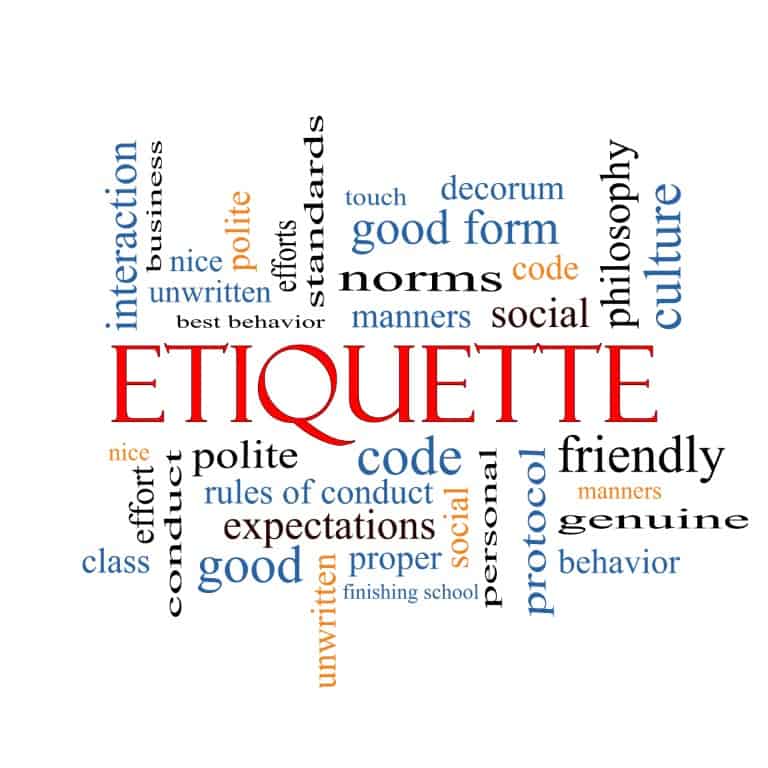
Basic Etiquette for Kids
Etiquette is how you tell the people in your corner of the planet that you care about their feelings and comfort and respect them. In the following lines, we list some basic etiquette for kids that you should practice regularly. Reinforce these manners, and you will be a polite, well-liked, thoughtful and successful child.
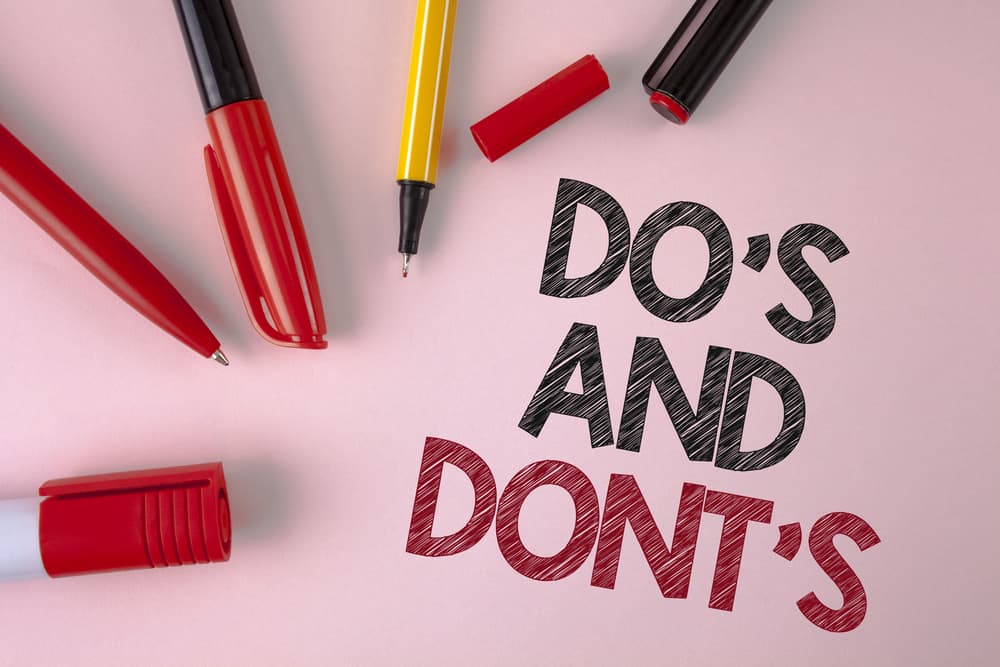
1. Say “Please”
The most important rule of etiquette for kids is to say “Please”. Always say “Please” when you request something from anyone, regardless of age. Saying “Please” shows that you think about the wishes and feelings of others. Let it be a habit at your age, and it will typically last forever.
2. Be Appreciative and Say “Thank You”
In addition, get into the habit of saying “Thank you” to anyone who did something to you. Saying “Thank you” is one of the top rules of etiquette for kids. This phrase shows that you are appreciative and grateful for the kindness of others.
For example, when you make a request, and someone assists you, respond with “Thank you”. This person will most likely want to assist you in the future, especially teachers. Additionally, when you receive a gift or something from anyone, say “Thank you”.
3. Writing Thank-You Notes or Cards
What about sending a “Thank You” card to the gift giver? A handwritten “Thank You” note has a powerful effect on the gift giver as it shows your affection, appreciation and respect for the gift. You can attach a picture of you holding the gift with the note. Since we are in the age of technology, you can also send an email expressing your gratitude with a “Thank You” sign.
Additionally, send a “Thank You” note to your friend and their parents if you have had a good time at their house. It is also appropriate to leave a “Thank You” message for those who serve or assist you, including the waiter and the house manager.
Make a surprise for your mom and dad and thank them for what they do for you all day. How about sending them a DIY “Thank You” card expressing your appreciation? It is a wonderful idea that will make them happier and more proud of you.

4. Say “You Are Welcome”
The other essential thing you need to learn regarding the rules of etiquette for kids is how to accept a “Thank You” politely. If someone thanks you, avoid not replying at all and also never reply with “OK”, “No Problem”, or “Whatever”. Instead, say “You are Welcome” or “My Pleasure”.
5. Apologise
Also, among the rules of etiquette for kids is to make an apology when you are at fault. Apologising shows that you respect others, take responsibility for your actions and are courageous. It also demonstrates that you acknowledge your mistakes respectfully and empathise with others.
Also, apologise when you do something accidentally. Such instances include:
- bumping into someone,
- sneezing during a conversation,
- laughing aloud in a quiet place,
- burping during a meal,
- and breaking an item.
To apologise, you can use phrases like “I am Sorry”, “I apologise”, “Excuse me”, or “Pardon me”. If someone has apologised to you, accept the apology with goodwill.
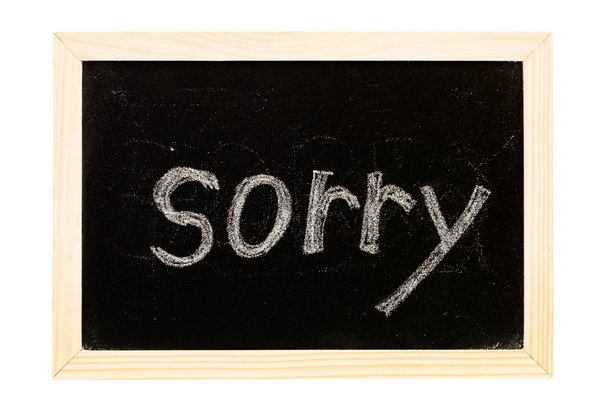
6. Say “Excuse Me”
Always seek help from others if there is something that cannot wait, an emergency, for example. The most polite way to interrupt a group of people and ask for help is to say “Excuse me” first. “Excuse me” shows that you care for the feelings of others and respect them. You can also say “Excuse me” when you want to get the attention of someone or enter an open room.
7. Be Polite to Everyone
Being polite is a vital skill that teaches you to talk clearly and respectfully in a phone call or a face-to-face conversation. “Please”, “Thank You”, “Excuse me” and “Sorry” are precious words that you should always use in your day-to-day conversations. Moreover, there are also other polite words that you should use in your daily life.
To ask for or request something, use “May I”. After you greet someone, just ask them, “How are you?” It is the simplest and most effective way to start a casual conversation with someone. However, if someone asks you this question, reply with “Fine or great, thank you”.
When you say such polite words, you acknowledge the feelings of others. Practice saying them often as early as possible, and they will become a regular part of your future life.
8. Avoid Swearing and Using Foul Language
Swearing and using bad words or inappropriate gestures are disrespectful to other people. Never imitate everything you hear or see. Do not also call people mean names because this hurts their feelings.
9. Avoid Rude Noises and Disgusting Acts
In addition, do not be rowdy and never fight, yell, interrupt or push anyone. Also, avoid disgusting acts, like spitting, burping, farting or breaking wind. Throwing things away in anger is gross, too.
10. Cover Your Mouth When You Cough, Sneeze or Yawn
When you cough, sneeze or yawn, cover your mouth and nose with your elbow, a tissue, a handkerchief, a napkin or a mask. Take this reasonable precaution to avoid spreading infection or disgusting someone. Not only is this a way to help the people around you feel safe and comfortable, but it is also a matter of hygiene. Besides, do not pick your nose in public or in front of your parents or friends because it is a disgusting act.
After you cough, sneeze or yawn, never forget to say “excuse me”. However, if you hear someone sneezing, respond with “[God] bless you” or “gesundheit” if you are in the US or Canada. “Gesundheit” is a german word that wishes good health to the one who has sneezed.
11. Maintain Adequate Hygiene
Maintaining adequate hygiene is also one of the significant rules of etiquette for children. It is important to do the following:
- Each time you eat, wash your hands thoroughly before and after your meal to remove germs.
- Wash your teeth appropriately after you eat.
- Also, wash fruits before eating them to remove bacteria from their surface and ensure they are clean.
- Only throw waste in the dustbin.
- Never spit on the road.
12. Knock First
If you want to enter a closed room, knock on the door and then ask, “May I enter the room?” If you hear a response, open the door and enter the room. If no one responds, knock again and wait. Then, knock for the third time. If you receive no reply, it means that there is no one inside the room. So just open the door and enter.
13. Seek Permission First
To use someone’s belongings, such as their phone or pen, ask permission first by saying, “May I or Shall I use your pen (or the thing you want to borrow), please?” This act shows that you respect this person, their privacy and their personal space.
Besides, do not reach anything without seeking permission. You should ask an adult to give it to you. Also, when you are unsure about doing something, seek permission first.
14. Be Honest in Every Situation
Being honest is also one of the significant good manners you should learn at your age. Never take anything that is not yours without permission. When you find lost property, return it to its owner. Also, never lie or cover up your mistakes. If you did something wrong, admit it and be responsible for your actions.
15. Find the Rightful Owner of A Lost Item
If you find a lost item, try to identify its rightful owner. Alternatively, give it to the adult in the home or the teacher in the school.
What if you find a lost item in a specific location, such as a restaurant? In this situation, report the lost item to the manager. Its owner will return soon and ask for it.
However, if you are in the street, report the lost item to the nearest police station, and they will find its rightful owner.
Social Etiquette for Kids
Social etiquette was considered the basic etiquette for kids some time ago. It is something you pick up at an early age when you are developing habits. As the term implies, it refers to the manners you use while interacting with your family members, classmates, teachers, elders or strangers in public. Adhering to these rules of social etiquette for kids is necessary to coexist and live in harmony in society.
Unfortunately, many children are not very good at socialising in person in this technology-driven society. Nevertheless, they spend much time on mobile phones, tablets, laptops or other digital devices to communicate with others on social media apps or play online games. They know that socialising is important, but they cannot differentiate between socialising on social media apps and socialising in real life.
Interacting politely with the people around us, regardless of their age, is essential. Social interaction boosts your pleasure and well-being, helps you build strong relationships that last a lifetime and improves your memory and cognitive function. Additionally, participating in enjoyable activities with other kids prevents you from feeling isolated, develops your social skills and boosts your self-confidence.
Whether you are at a family gathering, birthday party, school or the grocery, you should treat others with good manners to develop trust and reliance. Listed below are some rules of social etiquette to be more successful in your life and navigate different social situations confidently.
1. Greet People Properly
One of the essential rules of social etiquette for kids is greeting people properly. A friendly greeting makes a huge difference to the people you meet. It demonstrates great modesty and shows that you value and respect them. A friendly greeting starts with a “Hello” followed by eye contact and a warm smile. Then, you may extend your hand for a handshake.
Handshakes may not be acceptable in different cultures and during the pandemic. So, it is recommended to do what is acceptable in your culture, such as nodding, bowing, or elbow bumping.
Always greet children your age by name. If you do not know their name, ask. Not only should you greet children by name, but also other people you interact with every day.
2. Respect Your Visitors
Giving your visitor a warm welcome is also one of the most important rules of etiquette for kids. If this is the first time you meet this person inside or outside the home, do not panic. Just introduce yourself briefly and greet the person, as we mentioned before. Then, share your name and ask politely about their name. Introducing yourself to new people boosts your social skills and enhances your skills of initiating conversations in the future.
3. Be a Good Host/ Hostess
If some people visit you, they are your guests. Put them first by serving them first and offering them the best seats. You can tell them “Let me take your bag,” and “May I take your coat?” It is also pretty nice to ask them if they would like a glass of water when they sit. Treating your guests well makes them want to revisit you.
4. Be A Considerate Guest
On the other hand, be a considerate guest when you go to someone’s home for a party or a playdate. Respect and follow all household rules despite being different from your own. Greet your host/ hostess, talk to them respectfully and control the volume of your voice.
In addition, never put your feet on the furniture. Follow the table manners of your host/ hostess, do not eat until they eat and clean up after yourself. Before you leave, thank your host/ hostess for the invitation and invite them back. It is also nice to send them an email with a “Thank you” note.
5. Show Respect for Elders
Regardless of age or social status, every person in this world deserves respect. One of the most significant rules in social etiquette for kids is to respect other people, especially elders. Being respectful means not calling an adult by their first name unless they tell you to do so. The most well-mannered way to greet or address an adult is to call them either “uncle” or “aunt”. Alternatively, use an honorific title, like Mr. and Ms., before the adult’s last name to address or refer to them respectfully.
6. Care About Elders
Respecting and caring about elders is an essential rule of etiquette for kids, too. It demonstrates that you are responsible and dependable. Offer your help to a parent, a teacher or a neighbour working on something. If they ask you to do a favour, do it with a smile and never grumble. Also, help your parents with daily chores without asking. For instance, set the table, fold clothes, tidy your room and clean the house.
7. Never Argue With Elders
Never speak angrily with an adult if they make a decision about something you disagree with or do not like. Not arguing with them is a sign of respect. Instead, practice patience and self-regulation and then quietly tell them about your concerns through a healthy discussion. Doing so is among the essential rules of etiquette for kids.
8. Stand Up When You an Elder Shows Up in the Room
One of the well-mannered ways to respect elders is to stand up when they enter the room. Stand up to your grandparents, parents, uncles, aunts, teachers, and elderly visitors.
9. Give Up Your Seat to Elders
When you see an elder or pregnant standing in public transport, give up your seat unless you are seriously ill. Kids can stand up for a long period of time and may prefer it. Also, it is very kind of you when you think of and care about others who need help.
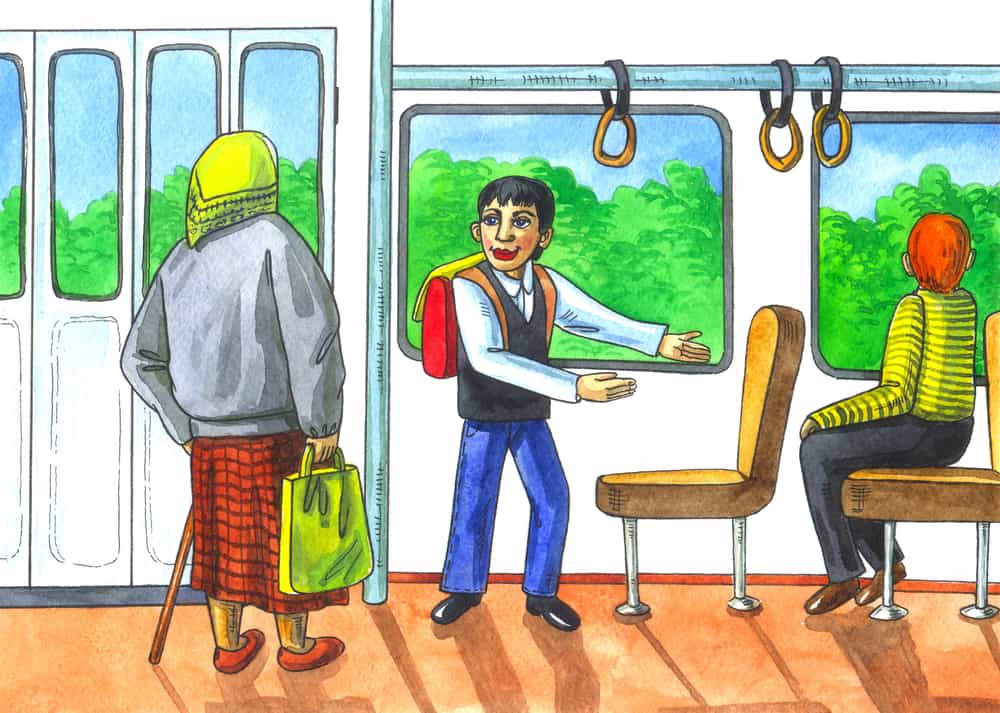
10. Help Differently-Abled People
Helping someone in need is also among the top rules of etiquette for kids, especially if they have long-term mental, intellectual, physical or sensory disabilities. Avoid mistreating them, using offensive language or showing pity.
On the other hand, treat differently-abled people with respect and kindness and befriend them. Make them feel confident and not ashamed of their disability. The golden rule is to treat them the way you would like to be treated.
Furthermore, do not provide any assistance to a differently-abled person without asking them first. Also, take care when you speak with them! Think carefully about your words to avoid hurting them unintentionally.
11. Be Helpful and Kind
Besides, provide help to all people around you without any prerequisites. Being kind and performing small acts of service sets a civil tone in society and keeps it running smoothly and functioning well. However, be careful! Do not do some of these small acts of courteous service to strangers you find unsettling. You should do them safely, i.e. when an adult you know is present.
For example, hold the door open to an elderly relative, a child or a neighbour carrying heavy bags. When you walk through a door, check if you can hold it for someone else. Help an elder cross the road or carry groceries. Also, offer the last cookie to your friend and share your food with your colleague who forgot to bring their lunch.
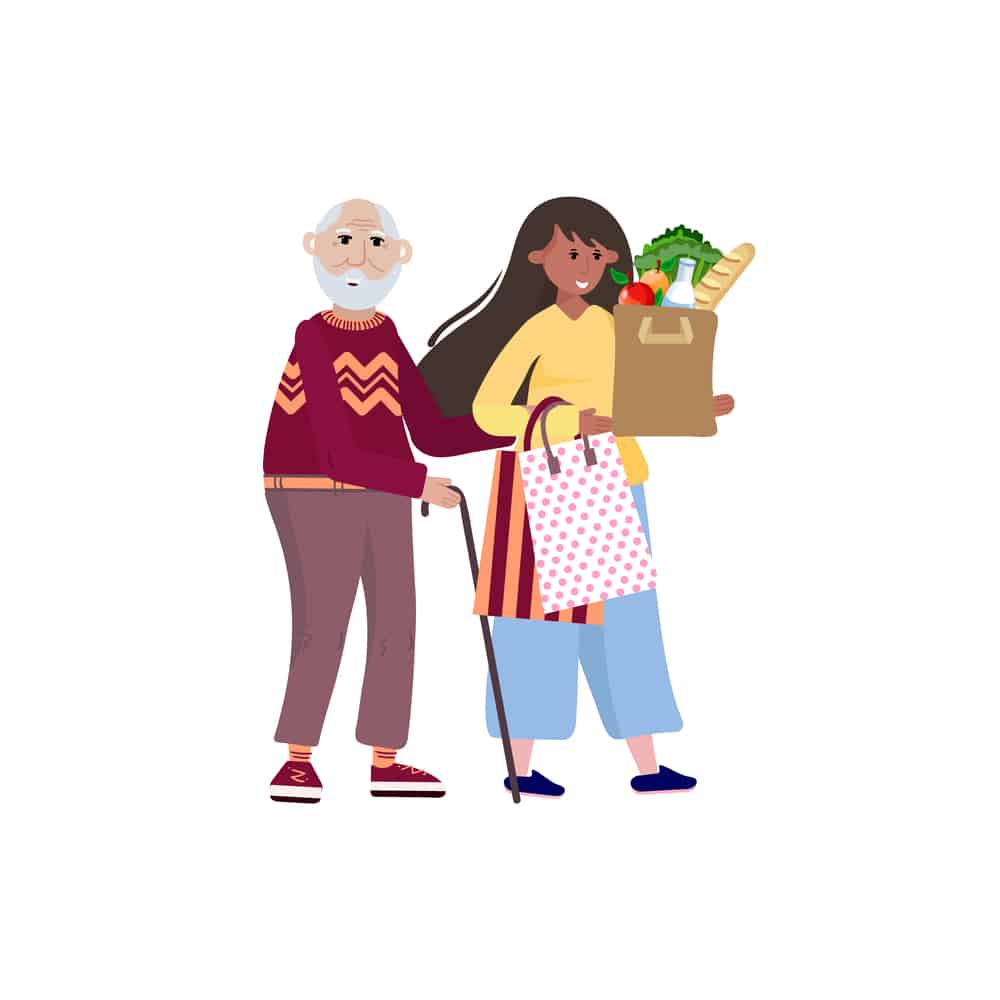
12. Share
Sharing is caring. It is an essential part of living because you show care and compassion for others. It also enhances your socio-emotional development. Share your favourite toys and books with your siblings, cousins and peers. If you like the taste of a recipe, share it with your family and acquaintances. You can also share your time with the people you love. Participating in charity activities is among good manners, too. It teaches you how to appreciate the things you have and think of people in need.
13. Be on Time
Time is precious and so being punctual is among the great rules of social etiquette for kids. Respect for others begins with being on time. Learn how to manage transitions from one task to the next. Also, do not delay any appointment or take it lightly. Avoid making teachers, family members, classmates and playmates wait for you.

14. Smile
Always smile. Smiling makes things better for you and other people. Get rid of resentment and be enthusiastic. Believe in yourself and boost a positive attitude towards situations, interactions and yourself.
15. Put Your Mobile Down
Never use your mobile phones at social gatherings and at dining tables. Do not stare at the screen, chat or keep the mobile in your hand when talking to someone next to you. Doing so means that you are not interested in what they say and would prefer to talk to the person on the chat. You should also keep your phone silent when you are in a place of worship, the classroom, the cinema, the theatre or the opera.
16. Listen Carefully
Listening carefully to what others say is an essential social etiquette for kids that leaves an enduring impression. Listening carefully and patiently before you speak improves your communication skills. As well as showing respect for the person you are talking to, it shows that you are interested in what they are saying.
17. Do not Interrupt
Most children want to express their thoughts as soon as something occurs to them. However, interrupting adults while talking on the phone or in person is inappropriate unless there is an emergency. If you want to speak when there is a conversation between other people, just tap the adult on their shoulder or arm and wait for them to acknowledge you. When they have finished talking, they will certainly respond to you.
18. Wait for Your Turn to Talk
Making small talk is one of the critical rules of social etiquette for kids as it improves your social skills. However, when someone is talking, it is rude to interrupt them. Just listen patiently and wait for your turn to talk. If the person has finished their talk, they will acknowledge you. Now, you have the opportunity to speak and express your thoughts and opinions. Listening carefully and talking in turns allow you to build strong and understanding relationships with others.
19. Practice Conversation Courtesy
Speak to the people around you the way you want them to speak to you. Be soft and speak in a friendly tone of voice. Control the volume of your voice, and do not speak loudly, even if you disagree with someone. A loud voice does not get things settled. Also, avoid using rude remarks, such as “shut up” and “whatever”, and avoid gossiping about anyone.
20. Respond to A Question Promptly
When an adult asks you a question, respond promptly and appropriately and do not ignore it. Your response is a sign of respect and acknowledgement. However, never give automatic answers, such as “whatever”, “yeah”, and “I do not know”.
21. Ask Questions to Others
When someone asks you, “how are you?”, reply and then ask them the same question. It is a sign of respect to ask questions to someone without being inquisitive because it shows that you have an interest in their feelings and ideas.
22. Make Eye Contact While Talking
Avoid looking away, staring at your mobile phone, biting your nails or fiddling with your hair during a conversation. These acts are considered rude and disrespectful. However, look people in the eyes while you greet them, speak to them, listen to them and respond to their questions. Making eye contact while talking is one of the effective ways to connect with people, both children and adults. It shows that you respect the speaker and pay attention to what they say.
23. Do not Stare or Point At Anyone
Making eye contact is among good manners, too. However, please do not stare at anyone. You might unintentionally stare or point at people or things out of curiosity or amazement, but be aware! Staring or pointing your finger at someone might be considered very rude. It may make them feel uncomfortable or intimidated, and may also take offence and object. So you must always avoid doing such an act.
24. Add Positive Comments
Every time you meet someone, add positive comments, such as “Happy to meet you”, “Have a great day” or “It is nice to meet you”. In this way, you demonstrate a sense of value for the person with whom you are speaking. Additionally, if someone invites you to a party or a family gathering, it is nice to say “Thank you for inviting me or having me”. Doing so shows that you are grateful to this person.
25. Compliment Others
If you have found someone upset or happy, treat them the same way you want to be treated if you are in the same situation. Empathising with others is one of the important rules of social etiquette for kids.
Look for opportunities to compliment others. Complimenting others allows them to feel good. With your sharp eye, observe the special care people have taken over their clothes or hair. If you like the new style or haircut of someone you know, it will be wonderful to pay them a compliment, such as “your hair is so nice”, “your outfit looks amazing” or “you are one of a kind”.
26. Avoid Sarcasm
Making polite observations is always welcome. Nevertheless, do not comment on someone’s appearance or physical characteristics unless you say something nice about them. Making fun of people for any reason is disrespectful, insensitive and hurtful. You should respectfully acknowledge that some people might have flaws and weaknesses.
Telling negative opinions about someone’s appearance is cruel and shows that you are weak and not gentle. Additionally, your sarcastic comments will hurt someone’s feelings and may affect them negatively. Be kind and understand the feelings of others. It is better to keep your negative opinions to yourself. If you are in doubt, tell your parent or teacher in private.
27. Be Gracious When You Compete
Another critical role of etiquette for kids is to be respectful and show good sportsmanship if you play a game or sport. You should always remember that it is only a game. Winning by foul is a hollow victory.
Do not gloat over your rival’s defeat if you win a competition. Instead, be supportive and cheer them on. You can clap your hands for them, shake hands or give them a high-five.
On the other hand, you should acknowledge your rival’s victory with humility and grace if you lose in a competition. Be willing to learn. Practice self-control and avoid hatred, jealousy and revenge. These negative emotions may lead to unethical behaviours, like cheating.
Bathroom Etiquette for Kids
Now Let’s move to bathroom etiquette for kids. A bathroom is a facility we take for granted. Nowadays, we have comfort-height toilets and toilet bowls with modern flush systems in the bathroom. There are also clean running water and other sanitation facilities that help us dispose of our waste appropriately. That is why it is vital to learn how to independently use the bathroom, whether private or public.
Practising proper bathroom etiquette teaches you independence, shapes your personality and promotes your health. It also saves you from injuring or hurting yourself or damaging something in the bathroom, such as destroying plumbing fixtures. Additionally, learning how to use the bathroom properly prevents you from catching infectious germs that could trigger illnesses that might spread among family members.
Listed below are some valuable tips regarding bathroom etiquette that you should follow. You will learn how to clean up after yourself, flush the toilet, practice proper hygiene, be safe and respectful and more.
1. Knock on the Door
The most essential rule of etiquette for kids is to knock on the door before entering any room. The same goes for the bathroom. The bathroom is a private area in which you should respect the privacy of others.
If you find that the door of the bathroom is closed, knock first because someone might be inside. If there is already someone in the bathroom, be patient and do not rush them to finish. Wait quietly! You can use another toilet if you are in a public place.
As a guest, do not snoop around the bathroom trying to discover private things because you might embarrass your host. Furthermore, you may be embarrassed if the host caught you red-handed.
2. Maintain Your Privacy
Similarly, you should keep all that you do in the bathroom private. Your body is yours. Never show it to others. To protect your privacy inside a bathroom, close the door after you enter it. Do not also show anyone what is inside the toilet after you use it.
If you are in a public bathroom, do not call anyone on your mobile phone. You do not know who is eavesdropping. Additionally, you may prevent someone who really needs the toilet from using it.
3. Practice Proper Hygiene
Hygiene is essential in a bathroom. In schools and public places, hundreds of people use the toilet every day, and they might be in haste. Therefore, most public toilets might not be completely hygienic. You should be able to differentiate between a clean and unclean seat in a bathroom. To make sure the toilet seat is hygienic, wipe it well before you sit. Sitting on a dirty seat is hazardous to your health because you might catch infections.
4. Clean Yourself
When you are done, use water or toilet paper to clean yourself properly. Make sure not to throw toilet paper in the toilet or drain because it can lead to major plumbing issues.
5. Clean the Bathroom
Keeping the bathroom as clean as it was before you use it is among the important rules of bathroom etiquette for kids. Once you finish using the bathroom, clean up after yourself. Wipe the toilet seat again to ensure it is dry.
6. Flush the Toilet After Use
Next, put the toilet lid down and then flush. Flushing with the lid up can spread infectious micro-particles into the air. Also, do not flush several times because this will badly affect the water bills. A dual flush toilet is better because it can save money; it allows you to use a small flush to get rid of liquid waste.
7. Wash Your Hands With Soap
When you come into contact with the toilet seat and the flush handle at home, at school or in a public place, your hands may be covered with infectious germs. So before you leave the bathroom, wash your hands thoroughly with soap and clean water to maintain your health. By doing so, you protect yourself from infectious bacteria and viruses. Additionally, you will not spread germs among others if you shake hands.
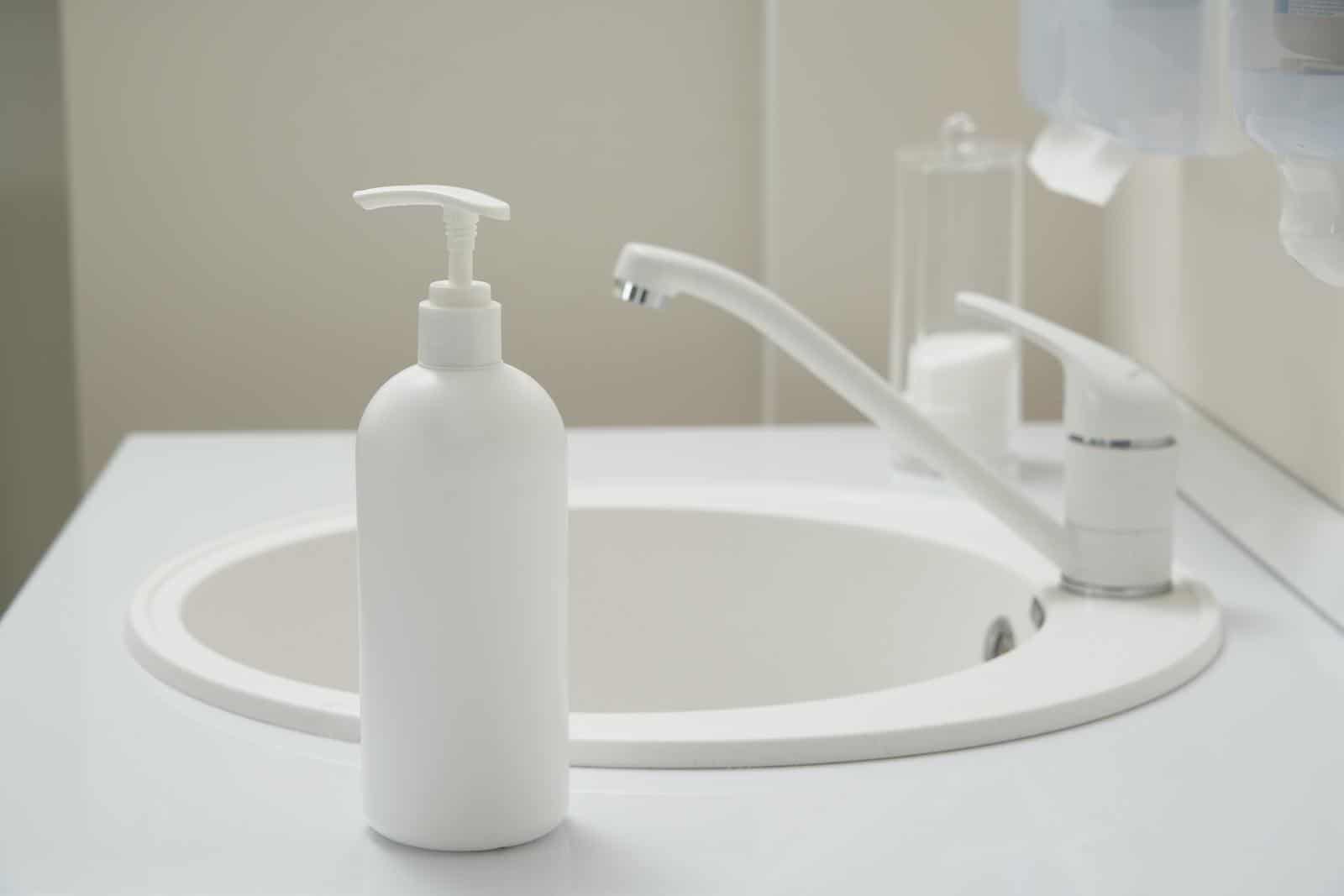
8. Keep Things Accessible
Before you use the bathroom at home, make sure all things you use are accessible: a stool, a hand towel, soap and toilet paper. However, if you are at school or in a public area, ensure that you have toilet paper, soap and tissues with you.
9. Know The Dangers Of Being Careless In A Bathroom
It is important to know the dangers in a bathroom to avoid them and protect yourself against them. Never run or jump in the bathroom because the floor might be wet. Therefore, you can lose your balance and injure yourself badly.
Additionally, know how to operate plumbing fixtures properly. Using them the wrong way can damage them, leading to water leaks. In this situation, only a professional plumber can repair the water leaking pipe.
Do not also play with water and splash it all over the bathroom. The water may get into an electrical outlet, causing a serious injury to you or serious damage to the bathroom.
10. Always Seek Help From Your Parents
At the first sign of danger or confusion, seek your parent’s help. Surely, they will guide you and show you how to do it before an emergency happens.
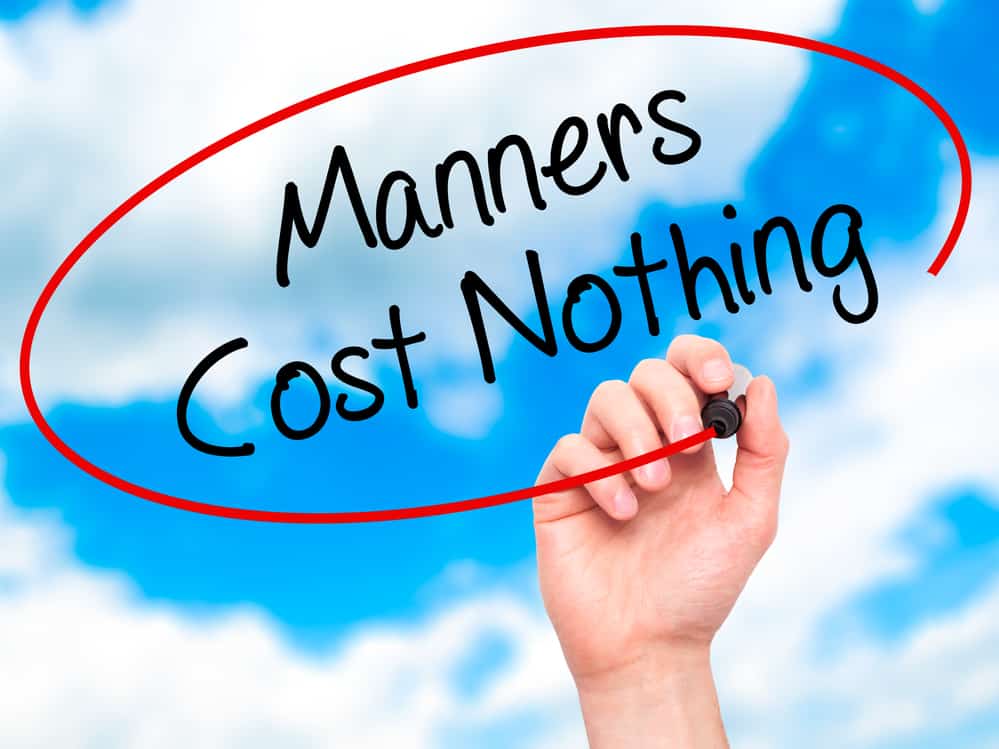
Learning and practising etiquette at an early age is very essential because it will become an effortless habit in your adolescence and beyond. Remember that your parents lead by example. They are your role models from the time you are born! Showing good manners impresses them, makes them feel proud of you and gives them a pat on the back.
Good manners and etiquette for kids are not just a long list of dos and don’ts. It is also about learning and showing respect to yourself and everyone on this planet. Of course, you will not learn all good manners straight away. You will make mistakes at first, just as all humans do. Do not give up. Try, try and try again. You can also read our articles about School Etiquette, Digital Etiquette and Table Etiquette for Kids.
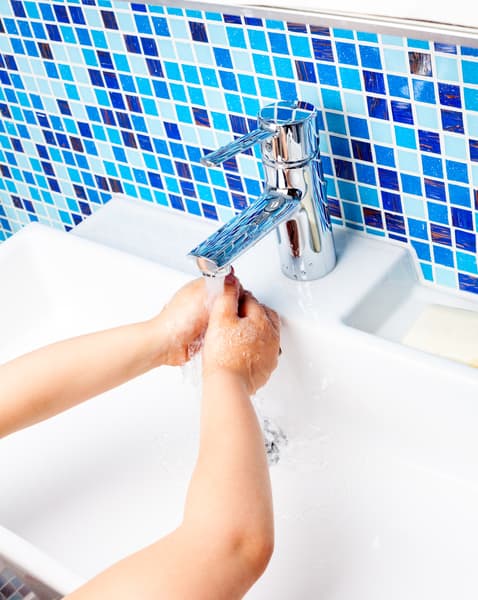


Leave a Reply